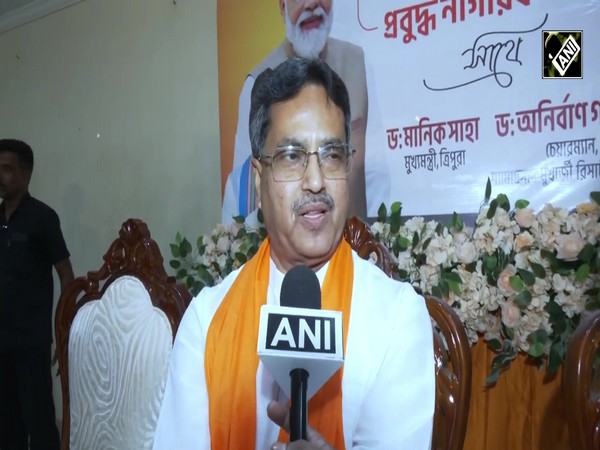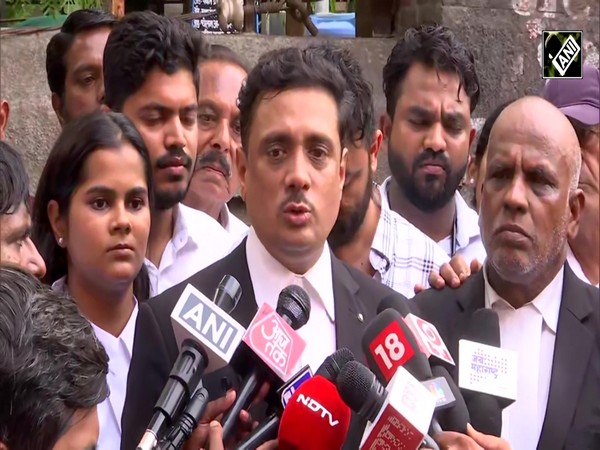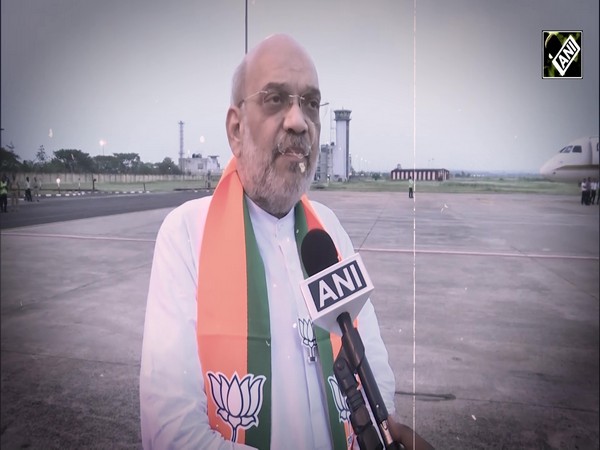Tamil Nadu boosts health surveillance after Kerala records first monkeypox case
Jul 16, 2022

Chennai (Tamil Nadu) [India], July 16 : Tamil Nadu's Health Ministry on Saturday boosted its health surveillance at the airport after its bordering state, Kerala, reported its first case of monkeypox, confirming the viral's first case in India.
The state's Health Minister Ma Subramanian and Health Secretary Senthil Kumar inspected the monkeypox screening of international passengers at the Chennai International Airport today.
"An impromptu check-up of 2 per cent of passengers was conducted at the Chennai International Airport," Subramanian said.
The ministry has started monitoring its state borders with Kerala via the deployment of 13 check-posts.
"Monkeypox has been detected in 63 countries. Now, it has reached India in Kerala on July 12 with a passenger who returned from the United Arab Emirates. In Tamil Nadu, we have started to monitor Kerala state borders at 13 check-posts," he added.
He further stated, "We are already doing mass fever screening camps (for COVID) and we have also attached the monkeypox screening with it. If anyone is found to have any symptoms, they will be monitored."
He assured that no monkeypox cases have been detected in Tamil Nadu, and strict precautionary measures are being taken.
"The airport is under constant monitoring. There are no monkeypox cases found in Tamil Nadu as of yet," he said.
He added that a separate ward has been formed with 10-15 beds for monkeypox patients in the Rajiv Gandhi Government Hospital as a precautionary step.
The ministry has requested the Central Government for permission for the deployment of testing centres for monkeypox, adding that they are hoping to get permission for a testing centre in Chennai.
"We have requested the Central Government to give permission for testing centres for monkeypox. We hope the central government will grant us permission for a testing centre in Chennai," he said.
After India reported its first case of monkeypox, experts from the All India Institute of Medical Sciences (AIIMS) on Friday said the infectivity of the viral disease is less but it can be fatal for children.
Speaking to ANI, Dr Piyush Ranjan, Department of Medicine, AIIMS said, "The infectivity of monkeypox is less but it can be fatal in children. The COVID-19 infection has more transmissibility, but monkeypox infection occurs after prolonged exposure to an infected person. So the infection rate is very high in COVID and an infected person can infect many. But, monkeypox is less contagious."
Explaining the symptoms, Dr Ranjan said, "Monkeypox symptoms are like smallpox and chickenpox. At the onset, patients will have fever and enlargement of lymph nodes. After 1-5 days the patient may report rashes on the face, palms or soles. They may have rashes in the cornea leading to blindness."
The Ministry of Health and Family Welfare on Friday released guidelines for the management of monkeypox disease.
The ministry listed out points for the general masses to avoid the contradiction of the disease which included avoiding contact with sick people and avoiding contact with dead or wild animals (rodents, monkeys).
The general public has also been advised to visit the nearest health facility if one comes in close contact with a monkeypox-affected person or an area with the affected persons or animals.
The Indian Council of Medical Research (ICMR) informed that 15 Virus Research and Diagnostic Laboratories across the country, which are geographically well distributed and strategically located, have already been trained in the diagnostic test by ICMR-NIV, Pune to help the country's preparedness for monkeypox detection.
According to World Health Organization (WHO), monkeypox is a viral zoonosis (a virus transmitted to humans from animals) with symptoms similar to those seen in the past in smallpox patients, although it is clinically less severe.
Monkeypox is transmitted to humans through close contact with an infected person or animal, or with material contaminated with the virus. It is usually a self-limited disease with symptoms lasting from two to four weeks, WHO said.
Monkeypox virus is transmitted from one person to another by close contact with lesions, body fluids, respiratory droplets and contaminated materials such as bedding.
The World Health Organization (WHO) has put the South East Asia region on alert and advised appropriate steps to contain the spread of monkeypox.



















